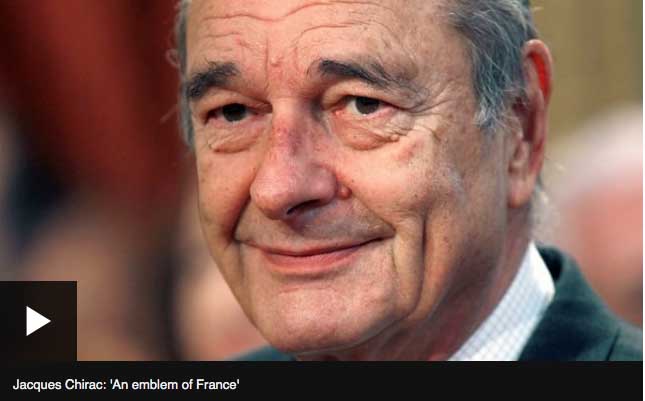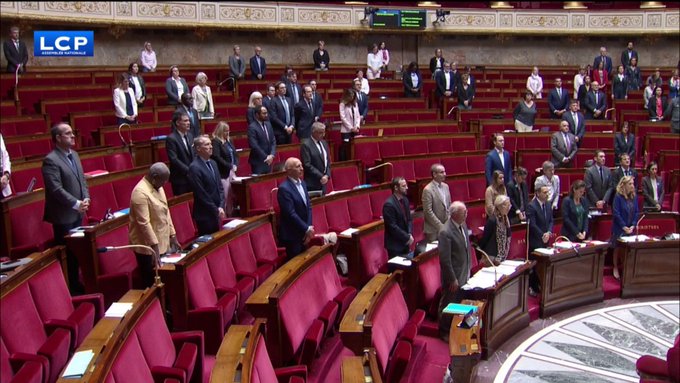Jacques Chirac, the former French president who championed the European Union, but whose later years were blighted by corruption scandals, has died aged 86.
"President Jacques Chirac died this morning surrounded by his family, peacefully," his son-in-law told AFP.
Chirac served two terms as president, one as prime minister, and took France into the single European currency.
The French National Assembly observed a minute's silence in his memory.
"Europe is not only losing a great statesman, but the president is losing a great friend," he said in a statement.
President Emmanuel Macron was expected to speak on television at 20:00 local time (18:00 GMT) to pay tribute to his late predecessor.
Former French President François Hollande also paid homage to Mr Chirac: "I know that today, the French people, whatever their convictions, have just lost a friend," he said in a statement.
And another former French President, Nicolas Sarkozy, said on learning the news: "A part of my life has disappeared today", adding that Chirac "embodied a France faithful to its universal values".
French television stations are playing wall-to-wall tributes, and it is moving to be taken back once again to that long epoch in French history when Jacques Chirac was at the centre of it all.
There he is as a chisel-chinned prime minister in the 1970s; later in a flared three-piece suit, announcing the creation of his Gaullist party; then as president upbraiding Israeli soldiers in Jerusalem; or glad-handing at the annual farm show in Paris.
The years have passed and no-one particularly wants to dwell on the many failings of the man. No mention in the tributes of the corruption and the flip-flops.
What remains for most is the memory of a likeable man, a man of culture (at least that was the image he cultivated), and a president who acted like a French president is supposed to - that is, projecting the permanent conviction that France, of course, is the best place in the world.
- Chirac was born in 1932, the son of a bank manager. He served as head of state from 1995 to 2007 - making him France's second longest serving post-war president after his Socialist predecessor Francois Mitterrand. But his health steadily deteriorated after he stepped down until his death on Thursday.
Chirac also served as the French prime minister, but he was beset by a series of corruption scandals. In 2011, he was convicted of diverting public funds while serving as the mayor of Paris.
Despite his failings, he won widespread support for his fierce opposition to French involvement in the Iraq War, and for being the first leader to recognise France's role in the war-time deportation of Jews.
Among his major domestic political reforms was a reduction of the presidential term of office from seven to five years, and the abolition of compulsory military service.
He moved during the course of his career from anti-European Gaullism to championing the European project and a European Union constitution that was then rejected by the majority of French voters.
In 2005, he suffered a stroke, and in 2014, his wife Bernadette said he would no longer speak in public, noting he had memory trouble.
source:BBC




